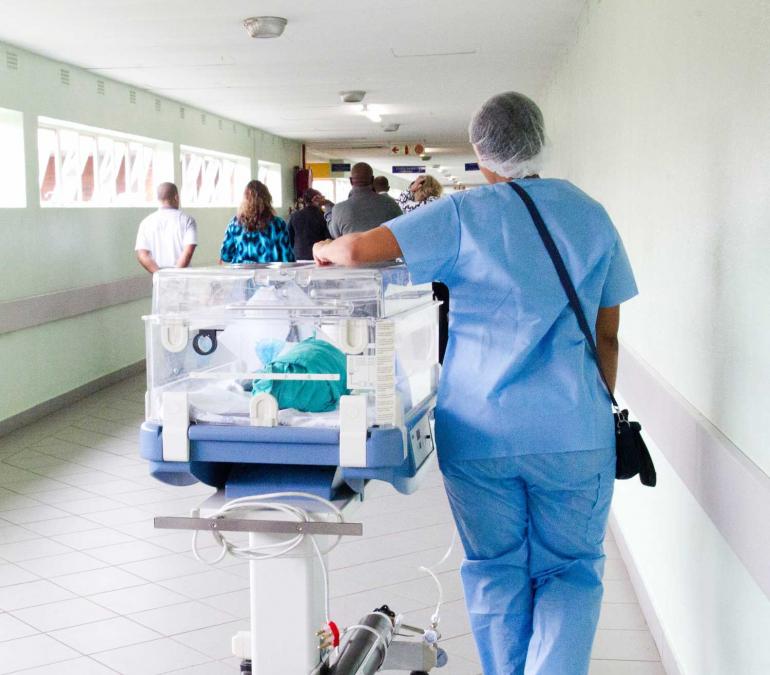
Increase Access to Quality Health Care
Together we can implement changes at every level of the health care system to increase access to quality health care for all.
What We Know
Quality, value and access gaps exist—and have consequences.
When people have access to routine, quality and affordable health care they experience better health outcomes, including during pregnancy and birth. Currently, gaps in access to high-quality care is putting moms and babies at an elevated risk for poor outcomes such as preterm birth and even death.
Access includes geographic proximity, affordability through health insurance, as well as the type of services covered by insurance plans (e.g. midwifery care and doula support). Studies show that states adopting Medicaid expansion see improved health outcomes, including lower rates of preterm birth and low birthweight. Not only is Medicaid expansion important to ensure that more people can access the care they need, but so is Medicaid extension beyond the first 60 days postpartum, so that families can receive the care they need, when they need it.
Access to quality care is an essential part of achieving birth equity. We are working to ensure that all people have access to person-centered, culturally appropriate care, free of implicit bias and stigma. Positive health care experiences, where patients feel seen, heard and respected by their health care providers can help improve birth outcomes and reduce disparities.

Improving Access, Quality and Equitable Outcomes
This strategy focuses on turning the curve on the rising maternal and infant morbidity and mortality rates, especially among communities of color, by addressing the quality, value and access gaps that currently exist.
In the last decade, the number of maternity care providers and birthing facilities with risk appropriate care available to families living in rural areas has declined, making it harder to access quality care before, during and after pregnancy. At the same time, rising reports of disrespectful care experienced by communities of color have given rise to the need to ensure quality care is available to everyone.



7M
According to the 2020 March of Dimes Maternity Care Deserts Report, seven million American women of childbearing age, 35 percent of which are women of color, live in counties without or with limited access to maternity care.
News & Resources
A national organization of urban maternal and child health leaders that works to promote equity and improve the health of urban women, children, and communities by strengthening public health leaders and organizations.

Hundreds of thousands of babies are born prematurely in the U.S. each year. This story highlights some of the stories of the women and babies impacted and brings forward expert voices on why the premature birth rate is going up.

Access to prenatal care and quality medical care for birthing people can make the difference between life and death. This report shows that more than half of births in Georgia are paid for by Medicaid and Georgia is one of just three states to extend Medicaid coverage to postpartum women.


